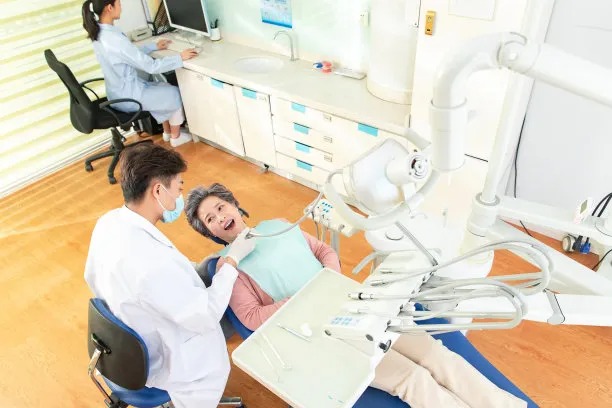The Journey of Extracting a Tooth Understanding the Process and Its Impact on Oral Health
Summary: Extracting a tooth is a common dental procedure that can significantly impact oral health. This article examines the entire journey of tooth extraction, beginning with the reasons and indications for the procedure, followed by a detailed overview of the extraction process itself. It also discusses post-extraction care to ensure optimal healing and potential complications that may arise. Finally, we explore the lasting effects on oral health and how this procedure can influence future dental health. Understanding these aspects is essential for anyone considering or undergoing a tooth extraction.
1. Reasons for Tooth Extraction: Why It Matters

Tooth extraction can be necessary for a variety of reasons related to oral health. One main reason is the presence of tooth decay, which can damage the tooth beyond repair. When cavities reach the pulp, the tooth may become painful and require extraction. Decayed teeth can also pose a risk to nearby healthy teeth, making removal imperative.
Another common reason for extraction is periodontal disease, a severe gum infection that can lead to tooth loss. If bacteria damage the supporting structures of the teeth, extraction may be the best option to prevent further complications. In some instances, orthodontic treatment requires the removal of specific teeth to align the remaining ones properly.
Lastly, wisdom teeth extraction is a prevalent procedure, as these third molars often become impacted or misaligned. Their removal is crucial to prevent pain, infection, and damage to adjacent teeth. Understanding these reasons helps patients appreciate the significance of their dental care decisions.
2. The Tooth Extraction Procedure: Step by Step
The tooth extraction procedure typically starts with a thorough examination and assessment by a dental professional. An x-ray may be conducted to visualize the tooths position and roots, ensuring a strategic approach to the extraction. After evaluating the situation, the dentist will discuss sedation options based on the complexity of the procedure and the patients comfort.
Once the patient is prepared, anesthesia is administered to numb the area around the affected tooth. In cases of simple extractions, the tooth is loosened using special instruments and then removed with forceps. For more complex cases, such as impacted teeth, an incision may be necessary to access the tooth properly.
After the extraction is complete, the dentist will provide aftercare instructions, which are vital for a smooth recovery. This may include biting down on gauze to control bleeding, applying ice packs, and using prescribed medications for pain management. Understanding the extraction process can help alleviate anxiety for individuals undergoing the procedure.
3. Post-Extraction Care: Promoting Healing
Post-extraction care plays a crucial role in recovery. Immediately after the procedure, patients are typically advised to rest and avoid rigorous activities for at least 24 hours. This prevents increased blood flow and minimizes the risk of complications, such as prolonged bleeding.
Patients should also adhere to specific dietary guidelines during the healing period. Soft foods are recommended to minimize irritation to the extraction site. Staying hydrated is essential, but straws should be avoided, as the suction can dislodge blood clots that are crucial for healing.
Moreover, practicing good oral hygiene is vital, but care must be taken around the extraction site. Gentle rinsing with warm salt water can promote healing while avoiding harsh brushing near the area. Adopting these care measures can significantly enhance recovery and reduce the risk of infection.
4. Long-term Impact on Oral Health: Consequences to Consider
The long-term effects of tooth extraction on oral health can be profound. One consequence may include shifts in the alignment of remaining teeth, potentially leading to bite issues or further dental problems. This emphasizes the importance of considering restorative options, such as dental implants or bridges, to maintain proper oral function and aesthetics.
In addition to alignment changes, the loss of a tooth can affect chewing efficiency, which may lead to altered dietary habits. Patients may prefer softer foods that lack essential nutrients, potentially compromising overall health. Thus, addressing the gaps left by extractions is crucial for maintaining a balanced diet.
Lastly, missing teeth can influence speech patterns, causing patients to feel self-conscious about their communication. This highlights the psychological impact of tooth loss and stresses the importance of considering how an extraction may affect ones quality of life. A comprehensive approach to oral health helps prevent further complications in the future.
Summary:
In summary, understanding the journey of tooth extraction—from the reasons for the procedure to its long-term effects—is vital for patients. The insights provided aim to clarify the extraction process, highlight the importance of post-care, and encourage proactive dental health decisions.
This article is compiled by Vickong Dental and the content is for reference only.



